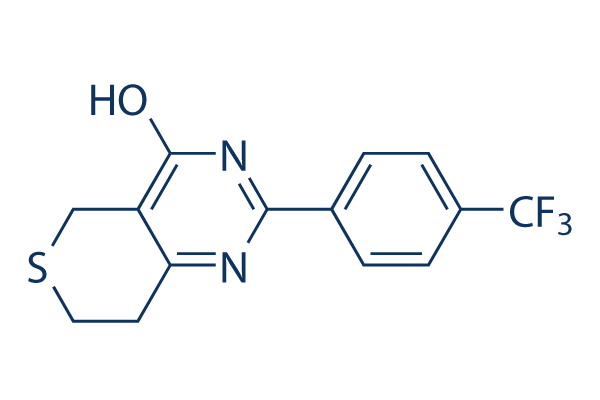These data suggest that elevated expression of Survivin may possibly cause cross resistance to paclitaxel treat ment in some trastuzumab resistant breast cancers. We believe that profound activation of PI 3 K Akt signaling, which we observed in BT474 HR20, but not in SKBR3 pool2 cells, could be the significant mechanism contributing for the upregulation of Survivin. At this moment, it remains unclear whether or not activation in the PI 3 K Akt signaling by any indicates, which include PIK3CA mutation or phosphatase and tensin homolog deletion additionally to erbB2 erbB3 receptors, would also boost expression of Survi vin in breast cancer cells. The intriguing phenomenon of Survivin mediated cross resistance to paclitaxel and tras tuzumab warrants additional investigation. Activation from the PI three K Akt signaling has been identi fied because the significant determinant of trastuzumab resistance, Furthermore to inducing paclitaxel resistance, the erbB2 erbB3 PI three K Akt signaling also outcomes in resist ance to hormonal therapy as well as other chemotherapy in breast cancer treatment.
Given that MM 121 primarily inhibits activation of erbB3 and Akt in erbB2 overexpressing breast cancer cells, hop over to this site it is actually conceivable to hypothesize that MM 121 may abrogate erbB3 signaling mediated therapeutic resistance to tamoxifen, trastuzumab, as well as other chemotherapeutic agents, such as doxorubicin. By taking advantage of the trastuzumab resistant breast cancer model, we have found that MM 121 is able to overcome trastuzumab resistance and considerably enhance trastuzumab induced development inhibition and or apoptosis in vitro and in vivo, Conclusions We demonstrate that targeting of erbB3 with all the blocking Ab MM 121 significantly enhances paclitaxel antitumor activity against erbB2 overexpressing breast cancer cells in our in vitro and in vivo models.
In those models, MM 121 is active to overcome the resistance to paclitaxel, and such a capability of MM 121 may perhaps be restricted to the ineffective doses of paclitaxel. Mechanistically, MM 121 inhibits the PI three K Akt signaling, downregulates Survivin, and subse quently enhances paclitaxel mediated cytotoxicity kinase inhibitor 17-AAG and apoptosis in vitro. The combinations of MM 121 and pac litaxel significantly inhibit tumor cell proliferation, decrease expression of Survivin, and induce apoptosis in vivo. Our information help additional studies to explore the therapeutic po tential of MM 121 in combination with paclitaxel in breast cancer sufferers with erbB2 overexpressing tumors. Breast cancer is the most often diagnosed cancer in girls and also the second leading bring about of cancer deaths within the Usa.
Though quite a few  threat aspects improve the incidence of breast cancer, obesity is among one of the most crucial risk variables for breast cancer in post menopausal females since it not merely increases the inci dence of breast cancer but also the mortality rate because of poor prognosis and outcome, Obesity has been shown to influence prognosis by means of a number of mechanisms, including enhanced metastasis price and drug resistance, In addition, current studies have demonstrated a stronger correlation among abdominal obesity and breast cancer, Though the precise hyperlink in between obesity and breast can cer remains to become determined, previous studies have described the activation of adipose stem cells inside the presence of breast cancer to contribute to its patho genesis, ASCs are mesenchymal lineage stem cells which are recruited for the tumor or web sites of inflammation and are vital components that establish the tumor microenvironment, This recruitment enhances tumor development by means of the secretion of an abundance of development things from ASCs, just like IL 6, CCL5 and PDGR, which have already been shown to contribute to both the breast cancer tumorigenesis and the metastasis of breast cancer cells, While previous research have determined that ASCs play an integral part in the progression of breast tumors, the impact of obesity and abdominal obesity on the rela tionship amongst cancer and ASCs has not been investi gated.
threat aspects improve the incidence of breast cancer, obesity is among one of the most crucial risk variables for breast cancer in post menopausal females since it not merely increases the inci dence of breast cancer but also the mortality rate because of poor prognosis and outcome, Obesity has been shown to influence prognosis by means of a number of mechanisms, including enhanced metastasis price and drug resistance, In addition, current studies have demonstrated a stronger correlation among abdominal obesity and breast cancer, Though the precise hyperlink in between obesity and breast can cer remains to become determined, previous studies have described the activation of adipose stem cells inside the presence of breast cancer to contribute to its patho genesis, ASCs are mesenchymal lineage stem cells which are recruited for the tumor or web sites of inflammation and are vital components that establish the tumor microenvironment, This recruitment enhances tumor development by means of the secretion of an abundance of development things from ASCs, just like IL 6, CCL5 and PDGR, which have already been shown to contribute to both the breast cancer tumorigenesis and the metastasis of breast cancer cells, While previous research have determined that ASCs play an integral part in the progression of breast tumors, the impact of obesity and abdominal obesity on the rela tionship amongst cancer and ASCs has not been investi gated.
Microrna Array
MiRNAs appear to target about 60% of the genes of humans and other mammals.
